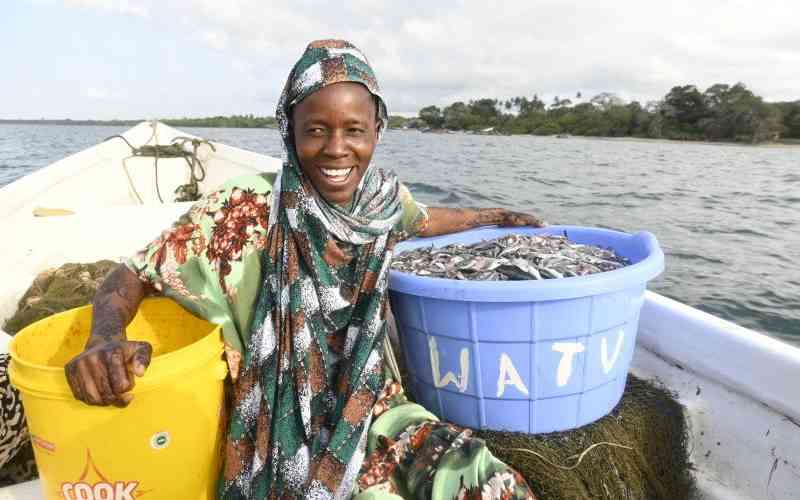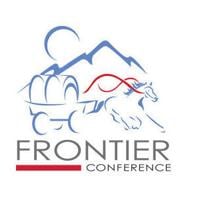Kenya-Norway pact to boost blue economy

[Levis Musumba/Standard]
Kenya’s efforts to exploit opportunities in the blue economy sector have received a major boost following the arrival of a Norwegian fish stocks research ship at the port of Mombasa.
The scientific vessel christened Dr Friddtjof Nansen is operated by the Norwegian Institute of Marine Research and is equipped with seven state-of-the-art laboratories onboard.
The vessel that supports scientific programmes has completed the Kenyan leg of the research cruise that was undertaken between April 24 and to May 5, this year.
Built in 2016, it was named after Dr Nansen who was a leading oceanographer and professor of Zoology.
In 1922, Nansen was awarded the Nobel Peace Prize for his humanitarian efforts during World War 1.
The expedition's primary mission was to assess fish biomass, examine the oceanographic conditions and evaluate overall ecosystem health in the coastal and Kenya’s Exclusive Economic Zone (EEZ).
It will also recommend critical elements for the sustainable management of marine resources and fisheries. The ship was anchored yesterday at the Mbaraki wharf within Mombasa port.
Blue Economy Cabinet Secretary Hassan Joho noted that the monumental survey symbolises Kenya’s commitment to charting new frontiers in pursuit of a science-driven sustainable blue economy.
He commended the partnership between Kenya and Norway that has enabled Kenyan scientists and resource managers to be trained on data-driven and ecosystem-based marine management.
His speech was read by the Principal Secretary for Blue Economy, Betsy Njagi, during the ship’s port call and celebration of the 50th anniversary of the EAF-Nansen marine research programme.
“The programme has fostered cooperation across borders, creating strong networks for shared learning and coordinated action. It has also enabled Kenyan scientists to collect data, thus bridging existing knowledge gaps and connecting them with international experts for skills transfer,” Joho noted.
He noted that the programme has built the capacity of the Mombasa-based Kenya Marine and Fisheries Research Institute (KMFRI) and strengthened ecosystem monitoring and policy formulation.
Stay informed. Subscribe to our newsletter
“The preliminary results of the 2025 survey will help plan for sustainable management strategies and bolster Kenya’s resilience to climate change and marine biodiversity loss,” Joho stated.
He called for more scientific surveys to capture different seasons and give a clear picture of the ecosystem health and the environmental dynamics.
The survey is expected to provide extensive data on the country’s continental shelf and slope, revealing a rich biodiversity among pelagic fish species.
The event was attended by the Food and Agriculture Organisation (FAO) Kenya representative Dr Tipo Tito, Royal Norwegian ambassador to Kenya, Gunnar Holm and Nansen Programme coordinator, Ms Merete Tandstad among others.
Tito stated that over 300,000 Kenyans depend directly on fisheries yet the resources face serious threats from climate change, overfishing and marine pollution.
She further lauded the research programme for introducing tools to help the country monitor progress in sustainable fisheries.
The work of the vessel, she said, aligned with FAO’s blue transformation vision, which aimed to maximise the role of aquatic foods in providing affordable and nutritious diets while protecting ecosystems and building resilience.
“As we look to the future, the EAF-Nansen programme offers a model for science-based decision-making. Its contributions support Kenya’s leadership in ocean sustainability including President William Ruto’s participation in the high-level panel for sustainable ocean economy,” she noted.
Holm affirmed Norway’s support to promote clean, healthy and productive oceans in the country.
He said the visit by the Norwegian ship aimed to boost the collaboration between the two countries.
“The 50 years of the EAF-Nansen programme testify to the strong common interests between Kenya and Norway in oceans and sustainable blue economy,” he stated.
Ms Marete said since the inception of the programme in 1975, it has supported 58 countries in conducting over 400 surveys that generated crucial knowledge on fish stocks, the ocean ecosystem and marine biodiversity.
“This knowledge continues to shape fisheries policies, support sustainable practices and strengthen regional collaborations,” she said.











